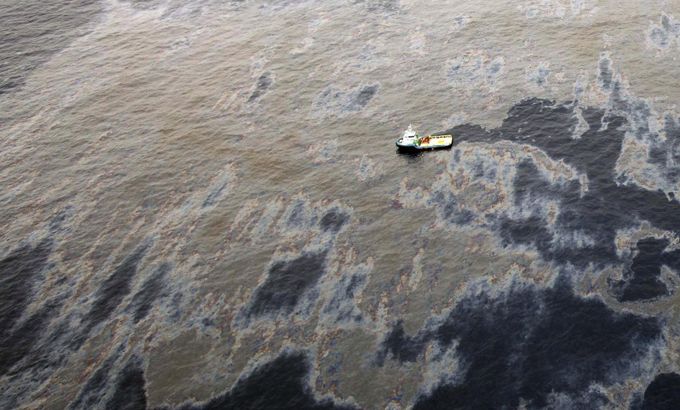
Will criminal charges slow Brazil’s oil rush?
Oil companies operating in Brazil will probably be forced to increase spending on safety measures.
The discovery of vast reserves of pre-salt oil – some 50 billion barrels of it – off the coast of Brazil is supposed to create a boom for the nation as Western oil companies, together with their vast cash stockpiles and superior technology, rushed in to take their slice of the pie.
|
“Spills should not be viewed in isolation…The ocean is not a sewer. It supports 99 per cent of life on earth, so the question not only for Brazil but the entire world community needs to come to grips with the impact of oil drilling on the environment.“ Diane MacEachern, author on environmental issues |
But now the Brazilian authorities are pitting themselves against two US oil companies, Chevron and Transocean, following a relatively small oil spill last November at the Frade field some 360km from Rio de Janeiro’s coast.
Keep reading
list of 4 itemsCould shipping containers be the answer to Ghana’s housing crisis?
Thousands protest against over-tourism in Spain’s Canary Islands
Holding Up the Sky: Saving the Indigenous Yanomami tribe in Brazil’s Amazon
The accident cracked geological structures in the reservoir and oil will continue leaking from the field until it is emptied. So far it has leaked up to 3,000 barrels of oil – which is considered as a small leak compared to many others.
But just last week, the same well started seeping oil once again, prompting Chevron to temporarily suspend all production.
As a result, 17 managers from the two companies have had their passports revoked, and they are likely to face criminal charges. Prosecutors will allege that the companies should not have drilled the deep-water well that leaked, and that they knew of the risks.
There has been an outcry against the regulations, which some say are inconsistent.
Marcelo Lins, a journalist with Globo News TV, believes Brazil is in a delicate position, because the country is hosting the Rio+20 United Nations Convention on Sustainable Development in June and it is very important for the government takes a stand on these issues.
Lins is also the producer of a film in which he predicted the Chevron oil spill before it happened. He says:
“Chevron was not careful enough … perhaps using too much pressure in it drilling may have caused the first spill four months ago. I don’t think we can expect a prison mandate but should be seeing some huge fines to send a sign of alert to big companies coming to exploit oil in Brazil.”
So will harsh penalties against Chevron discourage it and other oil companies from drilling off the coast of Brazil? And is there such a thing as too much regulation?
To answer these questions Inside Story America talks to Thomas Pyle, president of the Institute for Energy Research; Marcelo Lins, a journalist with Globo News TV in Brazil, and the producer of a film in which he predicted the Chevron oil spill before it happened; and finally Diane MacEachern, an author on environmental issues and former consultant for the Environmental Protection Agency.
| “If Brazil overplays it hand with respect to the regulations, and more importantly the inconsistencies there, they will send a chilling effect to the industry… It is up to the Brazilians to decide for themsleves how they will fuel the next period of growth. They are the sixth-largest economy in the world.”
Thomas Pyle, Institute for Energy Research |